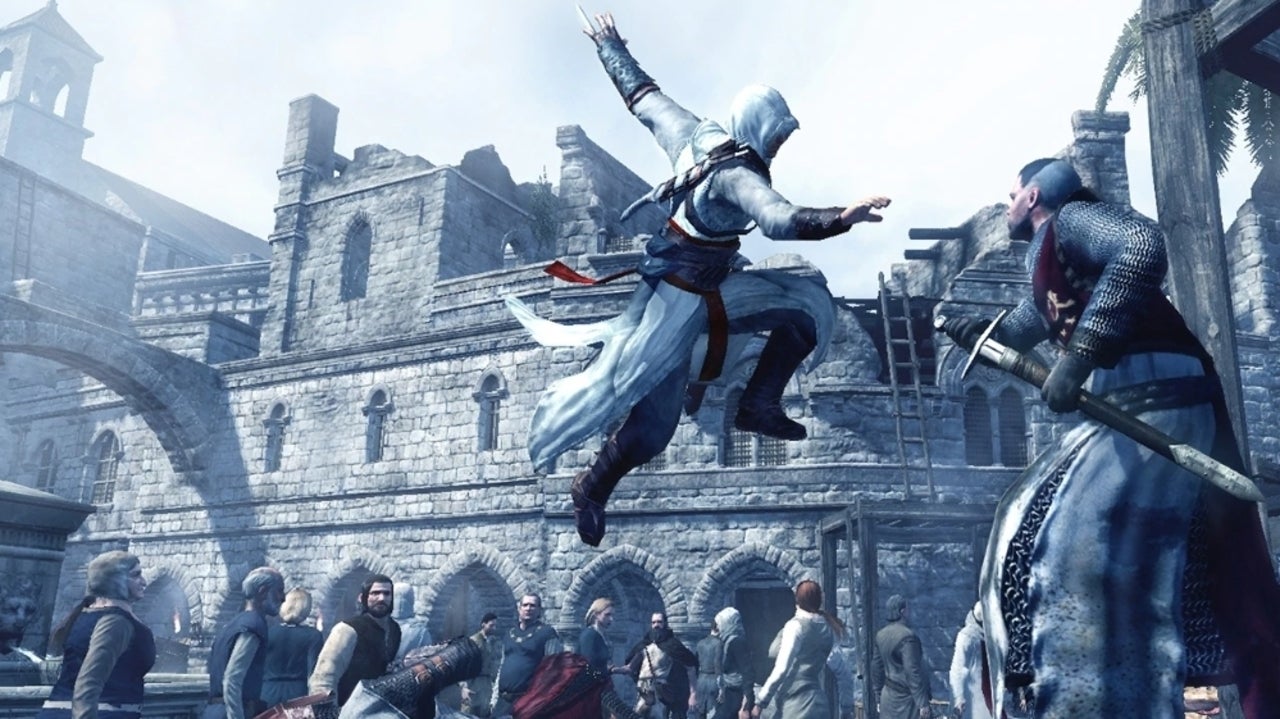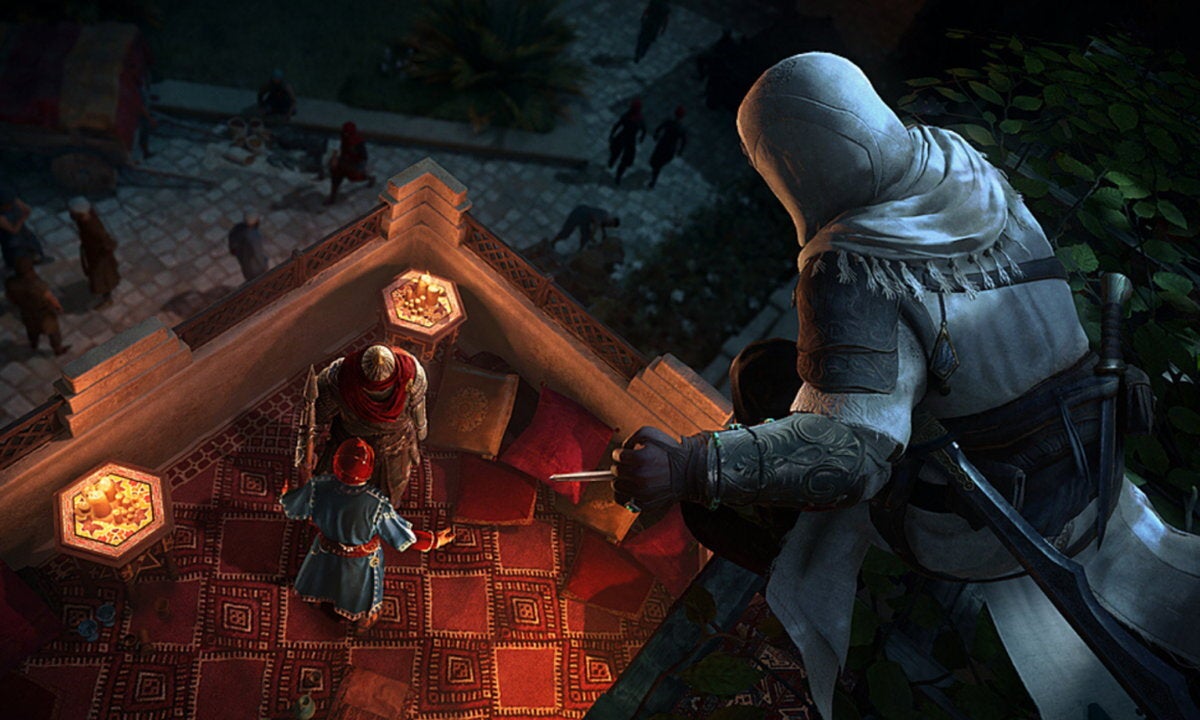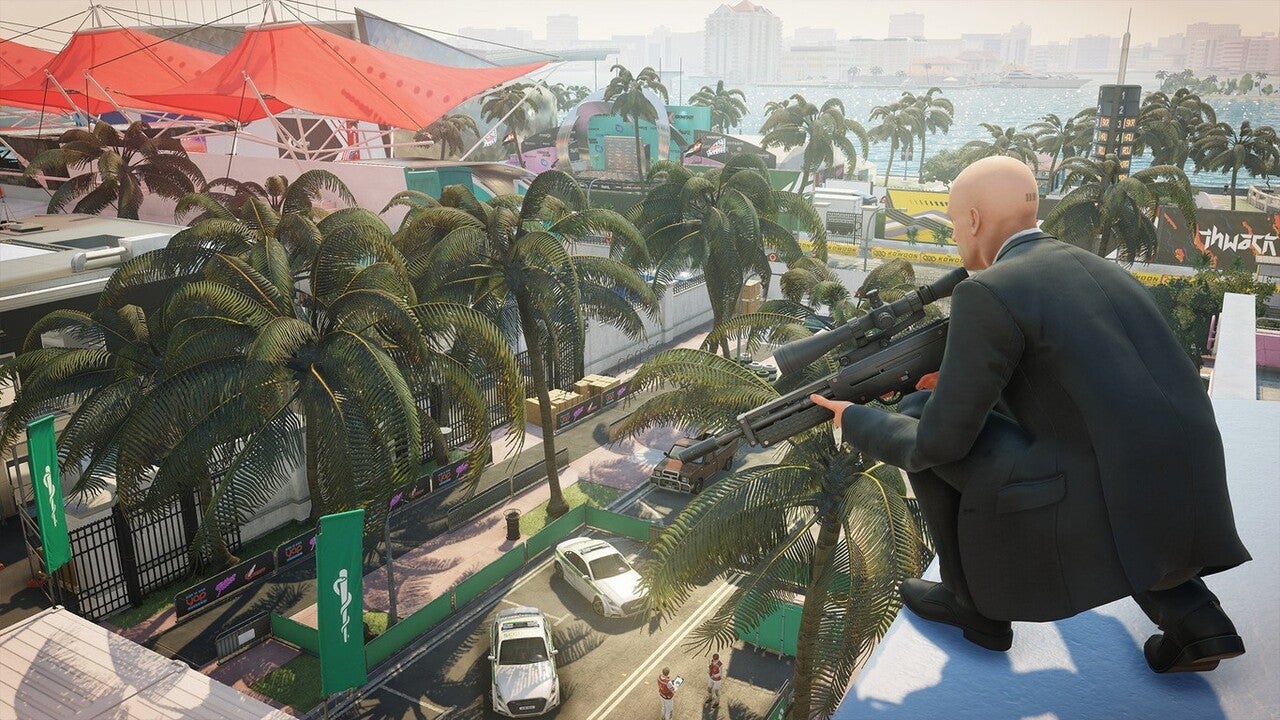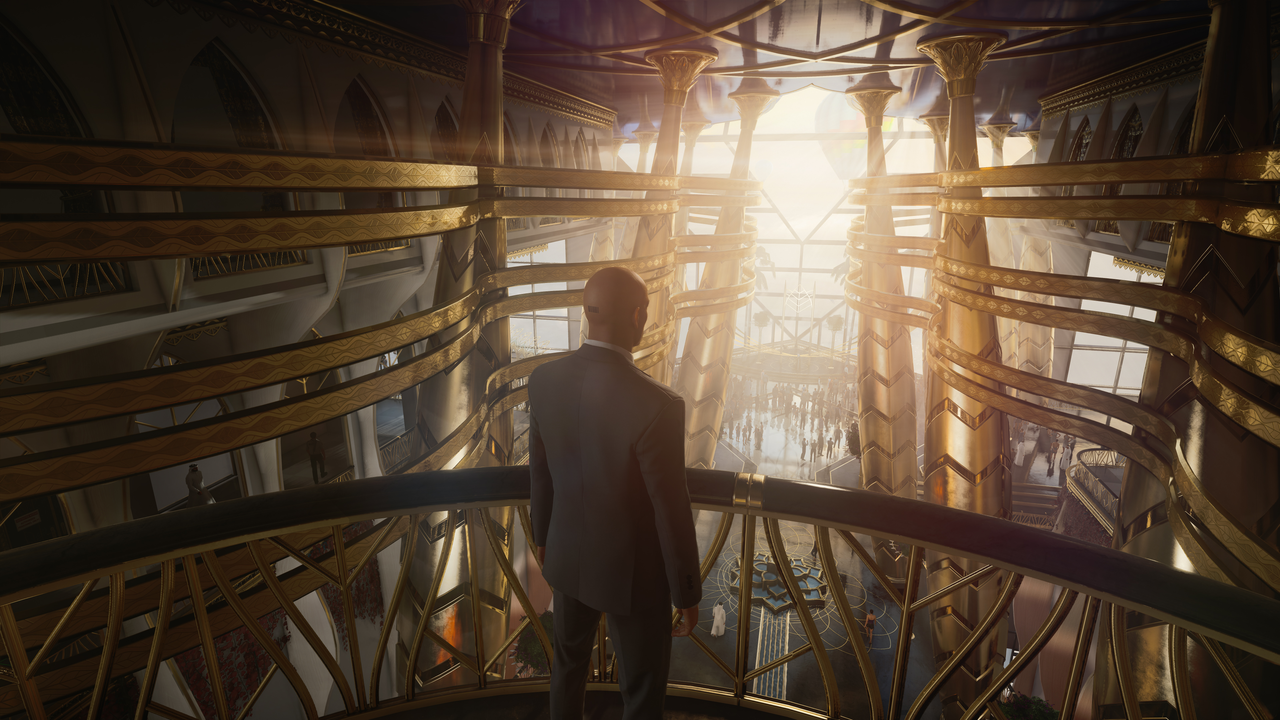I can’t wait to get murderous in ninth-century Baghdad when Assassin’s Creed Mirage arrives next year, but I fear it might be leaning a bit too hard on the first installment of the long-running franchise.
As fans await the next major Assassin’s Creed release – now turned into an expansive open-world RPG saga – Ubisoft has chosen to throw veterans a bone with Mirage, which promises a refreshed take on the original, classic AC formula. Problem is… that original formula wasn’t super solid to begin with and certainly doesn’t hold up anymore. Sheathe your curved swords, please. Just give me a few more paragraphs.

Assassin’s Creed was a spectacular multiplatform release of the early PS3/360 era. Even before it hit shelves, we were amazed by Ubisoft’s brand-new Anvil engine, all the reactive parkour and climbing, and those bustling crowds in 12th century Jerusalem, Acre, and Damascus. And it didn’t disappoint once it was out in the wild (even though some critics and players were quick to point out a repetitive overall structure that undermined the potential of its lively world).
While I was obsessed with AC1 as soon as it came out, those rough edges were hard to ignore past the second major assassination that involved tracking down a snitch, stealing intel, and stalking randos close to Altaïr’s targets. The gameplay loop simply became repetitive, way before the credits rolled, despite the game’s palatable length. Exploring each corner of those gorgeous cities yielded little to no satisfaction nor rewards.
But hey, there was nothing like it in the market. The tech on display was astonishing, and the (now janky) combat felt refreshing in a weird way after the era of third-person games doing either button-mashing or shooting. The Prince of Persia vibes were there too – I mean, it literally started out as a PoP spinoff – and glued together nicely the shakier bits of gameplay.

Fast-forward to 2022 and we find ourselves tricked into being excited for a brand-new Assassin’s Creed that promises to take the franchise back to its stealthier roots. The cynic in me says this is all probably just to regain the attention of veteran fans pushed away by the saga becoming ‘The Witcher 3 but across history and with parkour’. I agree with the sentiment that stealth has been dumbed down in recent entries, but transforming the AC franchise into something else felt like the sensible choice, ever since its traditional mechanics and counter-based combat started lagging behind the competition.
By the time Unity – which undeniably packs the best parkour in the series – and Syndicate came around, I vividly remember being burned out. Alongside a huge chunk of the player base. Assassin’s Creed got stuck in this idea of building upon the first game forever with new locations, characters, and gadgets while its core was rotting away. I was ready to move on, and so was the series.

As we all know, Origins (2017) reignited interested in the franchise after a two-year nap. It was a big reinvention which took AC’s basic DNA and ran away with an ambitious open-world structure and RPG systems that, even if generic, felt more rewarding than grinding endless icons in London for minor upgrades, and making the completion percentage tick up, bit-by-bit.
The funny thing here is that IO Interactive also rebooted Hitman some 18 months before Origins arrived, and effectively took over AC’s piece of the “stealth games” cake. By radically changing how its missions – now playgrounds shaped by minimal plot – played out, and expanding player choice at every corner, IO introduced a previously unseen kind of assassination sandbox that recognized the value of goofing around. And it rocked.

We had our doubts about the chunk-based release model of Hitman’s first season, but by the time we were done with Agent 47’s return, Hitman 2 (and later Hitman 3) couldn’t arrive soon enough. Now, we can’t imagine another studio topping that level of freedom and replayability in a non-open-world game; it encourages players to tinker with everything surrounding them and to create their own micro stories of murder.
Since the aforementioned soft-reboot trilogy distracted us with bold swings and beautifully realized worlds, Assassin’s Creed has barely been affected by the creeping realization that it essentially wasted years doing nothing with its main premise. Instead, it mostly stuck to building immersive historical settings and a far-fetched narrative around it. For better or worse, AC has become the historical sandbox franchise of gaming, only keeping stealth mechanics around because it’s obliged to by its name.
Now, with Ubisoft promising to (temporarily) strip away most of the hallmark RPG systems and go traditional with Assassin’s Creed Mirage, I can’t help but wonder if maybe the developer is going too far back. Because, nostalgia aside, the original Assassin’s Creed is a chore to play through. If the sandbox hasn’t evolved, or they aren’t giving us more ways to approach assassinations, we’ll just be pouncing on alleged bad guys from different rooftops and with way less systems keeping us from rushing through the story.

And it’s not just Hitman making the OG Assassin’s Creed gameplay feel stale. We’ve played through two Dishonored games, andseveral Batman games. Each got both stealth and combat right. And then we even got a Sniper Elite entry borrowing tricks from all the right places. A nostalgic historical setting and a decent story – Basim was a genuinely interesting character in Valhalla – won’t be enough to keep most players hooked if the gameplay has regressed too much. So we have to hope for a refreshing homage to the original AC instead of a retread.
I love this franchise with all my heart despite its ups and downs, and September’s AC15 event made me giggle with excitement. But I also believe it can (and should) learn from its many mistakes and rethink how it does stealth to create a better future for the brand, whether it’s doing big RPGs or sneaky romps. Stabbing cult members in the back and throwing knives at their lapdogs is cool and all, but let me drop chandeliers on them too.

